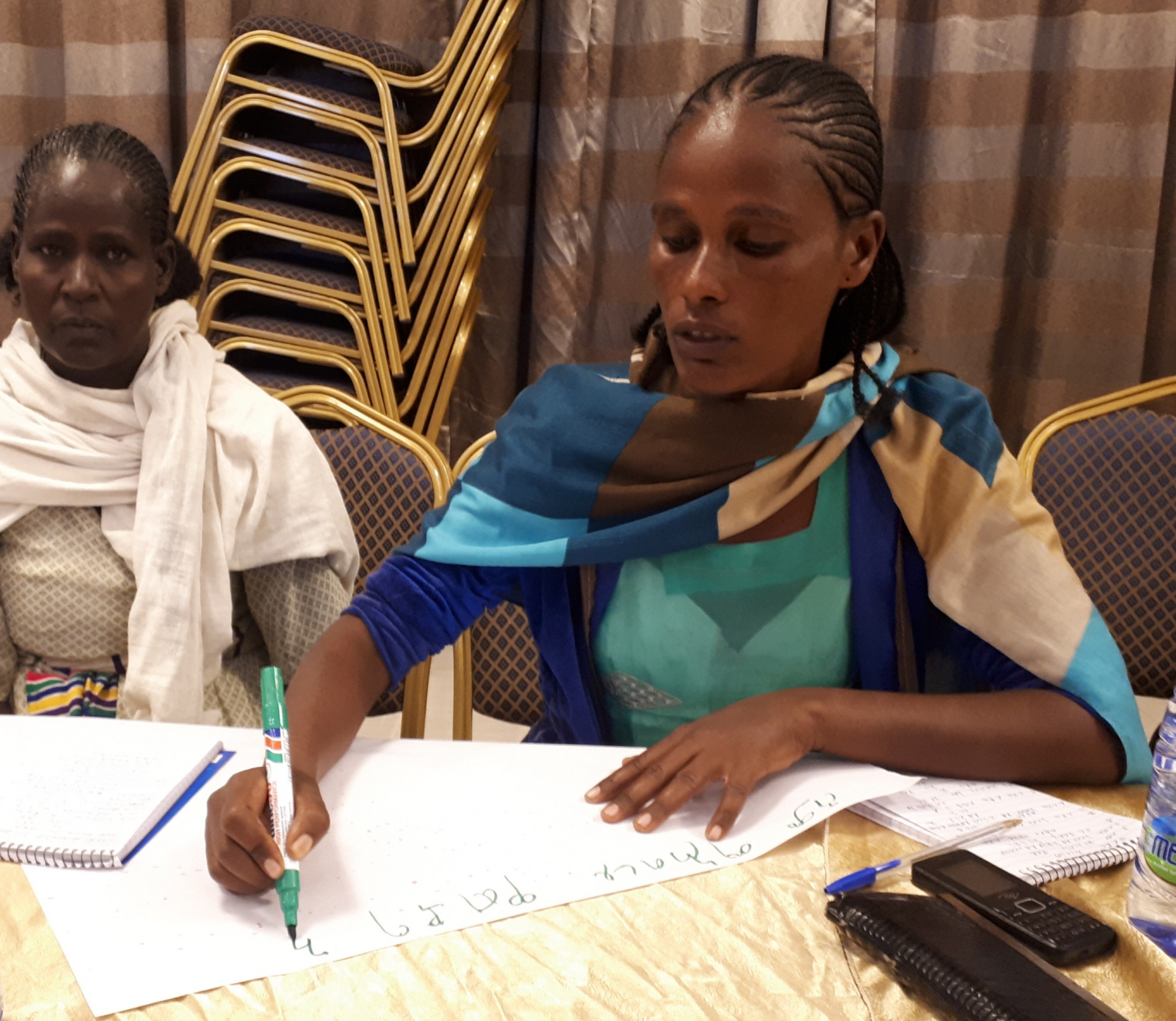7 stories of ambitious farmers around the world (part 7)
10-09-2019Agriterra reaches almost 700,000 farmers, organised in in more than 250 cooperatives. We interviewed 7 farmers from Nepal (2), Peru, Uganda, Philippines, China and Ethiopia to find out if their situation has been changed. How was their situation several years ago (or before their membership), what has happened during their membership, what were the most significant changes in their situation and how did the changes come about?
Below you can read the story of Hadgu Gebremedhin from Ethiopia.
Hadgu Gebremedhin
Female farmer
Age: 24
Member of Waldiba Primary Cooperative
Member since: 2013
District/region: Tigray region
Village: Maicha in Welkait
Hadgu Gebremedhin has grown up in the Tigray region of Ethiopia. She lived in a large family and found it difficult to live together with so many people.
Growing up she made and sold tea. This provided her with a very small income. In 2013, at the age of 18, she moved out and decided to go into farming too, as this would create a higher income. She had relatives who were already farmers and they provided her with the necessary knowledge.
That year she started renting land to produce different crops. At this moment Hadgu rents 3 to 4 hectares of land. She produces onions, tomatoes, cabbages and sesame seeds (she uses 2 to 3 hectares, depending on the rain and the situation of the soil).
Hadgu became member of Waldiba Primary Cooperative to get credit, fertilizer, seeds, pesticide and to get input related benefits. When she invests more, she can get more dividend.
'The improvement of the cooperative also leads to improvement of the farms.'
Changes
By becoming a farmer, and with the help of the cooperative, she is now getting a higher income and has started her own household. Without the cooperative it would have been almost impossible for Hadgu to have done this.
She needed the cooperative in order to get credit at a low interest rate. Local moneylenders charge a very high rate of interest. She needed the credit for renting the land and for paying the temporary staff who help her with the weeding and harvesting.
The previous six years the cooperative has improved in many ways and the farm of Hadgu and her life have improved in many ways too.
For example, the cooperative improved the output and the access to markets for their members, so Hadgu gets a fair price for her products. Without the cooperative the farmers would have no other option then to sell their products to local traders, who often force farmers to sell at a low price.
In the last few years the financial management of the cooperative has improved too and Hadgu got dividend from the cooperative twice. The total membership increased and the cooperative now has 1802 members. There are 4 men and 1 woman on the board and in the controlling committee there are 2 men and 1 woman. At this moment Hadgu is the secretary of this controlling committee.

Higher yield
The improvement in the quality of seeds leads to better quality of crops and a higher yield. There is a bigger variety of seeds available which leads to better quality and improvement of production too.
There is a bigger variety of pesticides and the service from the cooperative is improving. There are more trainings in the field of leadership, banking, credit, bookkeeping etc., therefore the farmers have more knowledge and can produce more crops of higher quality and this leads to more income.
‘The cooperative is like my mother; When I need seeds, the cooperative will give them to me; When I need credit, the cooperative will give it to me and when I need training, the cooperative prepares me for it.’
Female leadership
Hadgu joined a Female Leadership Training with 38 other participants. She told the other participants that it is important that more women are becoming members of a cooperative and that more women should participate in the board of a cooperative too. At the end of the training the participants made ambitious action plans for their own cooperative.

